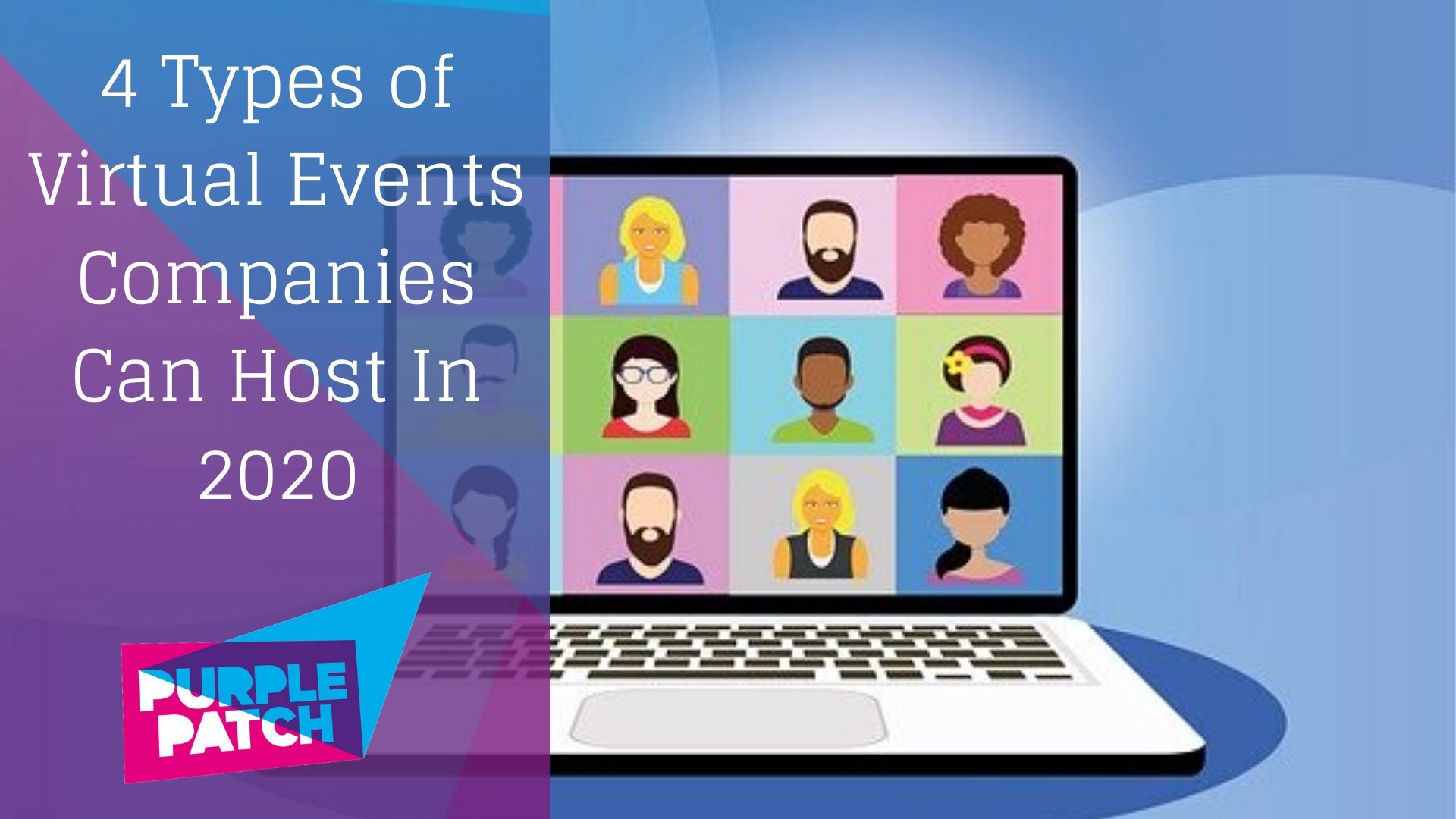Have you noticed lately how virtual events are gaining popularity so quickly, especially as the entire world continues to deal with the coronavirus? Even though the true value of face-to-face interactions will never fade away, however, there are times when cancelling an in-person event and going virtual is the need of the hour!
Fortunately, widespread access to the latest technology has made it feasible for modern companies to host virtual events that can rival their in-person versions, and this is benefiting both attendees and event planners in many ways. But is it that easy to turn a conference, for example, filled with countless networking opportunities, sessions, and insights, into virtual events?
In this article, we take a look at what virtual events and hybrid events have to offer, what are the different types of virtual corporate events you can host, how to incorporate virtual meetings into your events strategy, and what makes them worth the investment.
What is a Virtual Event?
By definition, a virtual or online event is an interactive meeting that takes place online. Unlike in-person events, such meetings aren’t restricted to a fixed single location. Anyone with access to a reliable internet connection and an invitation can join the meeting and participate as a remote attendee, from just about anywhere in the world!
If you have a corporate event coming up later this year and wondering if your event will be organised as planned, this is where switching your in-person event to a virtual one may possibly be the best option for your organisation – especially if you’re considering cancelling it altogether! Here are some of the top options you should be considering instead!
4 Types of Virtual Events for Corporates to Host in 2020
1. Webcasts
A webcast allows event hosts to effectively broadcast their media presentation online via video streaming technology. It’s the most suitable online alternative for in-person corporate events that don’t require interaction between the host(s) and the attendees (or delegates), especially in case of large audiences – like product launches, company-wide announcements, and employee conferences, for example. Now, it’s possible to utilise an easy-to-use webcasting platform that allows businesses to showcase their content, along with their logo and branding. Really nifty!
2. Webinars
Originally labelled as online ‘seminars’, webinars are a great option to allows attendees from around the world to join in virtually and listen to one or more presenters deliver the content. With the option to add multiple speakers, all of whom can join in from virtually any location, it can also help the presenters to avoid commuting.
Webinars coupled with live Q&A and audience interaction helps attendees make better decisions, which is why countless companies use it for collecting leads, or getting signups and pre-orders. However, they are an equally viable option if you’re looking to hold training workshops for your employees online. You can also leverage the potential of webinars if you’re a consultant planning to hold a group session with a bunch of your clients, from the comfort of your home office.
3. Virtual Conferences
With much in similar with their in-person version, virtual conferences are also designed around a complex agenda that includes multiple sessions, keynotes, refreshers, breakout rooms, and much more. You can use virtual conferences to deliver these experiences while also involving community engagement tools at the same time. While they may not be as effective as in-person conferences in terms of networking opportunities, virtual conferences still allow the attendees to build their own agenda, view keynotes from their choice of presenters in real-time, and interact with other attendees if they wish to.
4. Hybrid Events
Live streaming technology is making it possible for companies to host hybrid live and virtual events. The best part? It can enable you to share the entire event right as it unfolds, so the attendees can experience as close to attending the event in-person as possible. Primarily, there are two types of hybrid corporate events you can host:
(1) Internal Hybrid Events
Planning company-wide events, or perhaps department meetings like group training or sales kick-offs? Internal hybrid events can help you organise these events when employees are all at their remote locations. Since it may not be feasible to fly in every employee to your organisation’s headquarter at the moment, organising your internal events partly in-person and partly virtual is the next best option.
(2) External Hybrid Events
These corporate events are held for those who are outside of your organisation, like industry conferences, for example. Needless to say, these events require a lot more professional support, especially with video and graphic production, so that the overall experience of the virtual attendees isn’t compromised. This is the next best option for companies that want to organise the event partly in their studios or streaming space, as the governments start further easing the restrictions in the future.
Final Thoughts
In times like these, when everyone is advised to practice social distancing for so long, it does seem as though live, in-person events are a million miles away right now. Having said this, being the highly creative bunch that we are, as humans and specialist corporate event organisers, we have come up with some unique solutions to help your organisation take the virtual route for successfully hosting your corporate events online which you can learn more about on our virtual events.
If you have an upcoming corporate event and want to know how virtual events could benefit your organisation, feel free to chat with one of our expert corporate event planners who can share their professional advice and also help you come up with some effective ideas.



